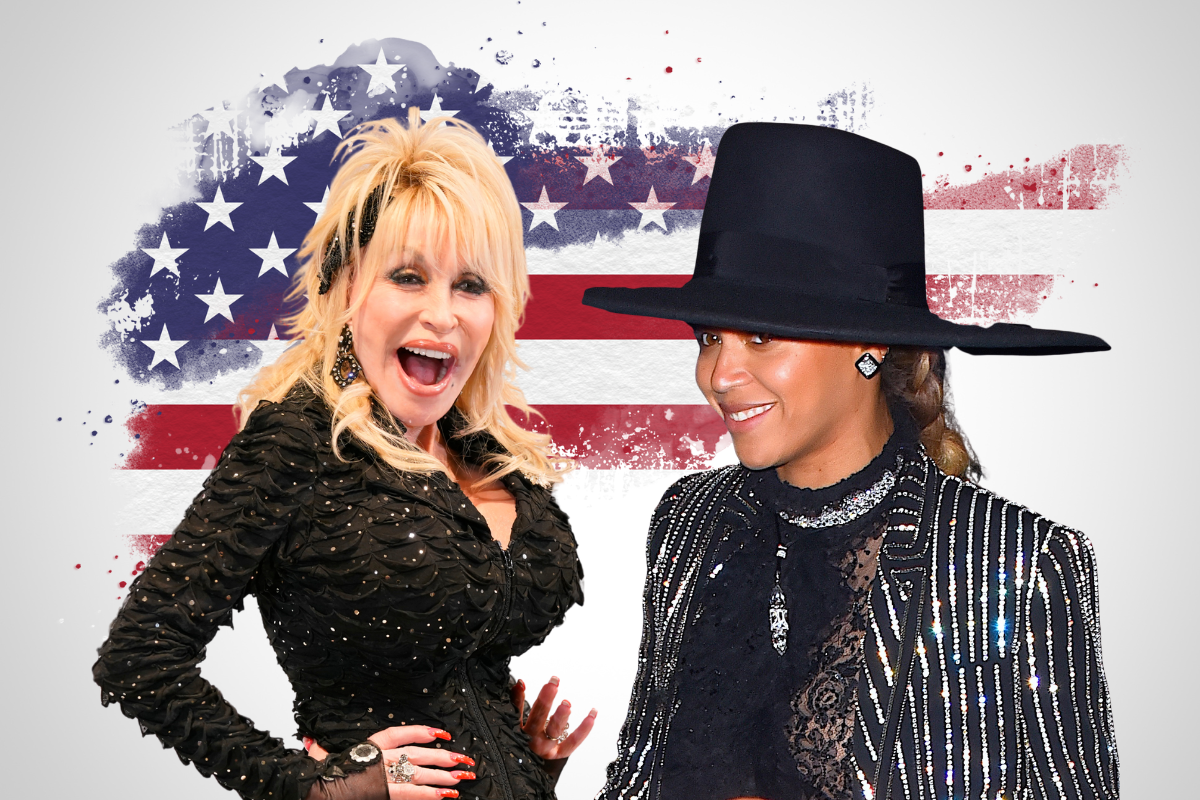Beyoncé's new album, Cowboy Carter, pays homage to many country music legends but none more so than Dolly Parton herself.
Parton let slip ahead of the hotly anticipated album's release that Beyoncé had recorded a cover of one her biggest songs, "Jolene," where Parton begs the titular character, "please don't take my man."
Once the album dropped on March 29, people got to hear not only the cover of the song but Parton herself in what sounds like a voicemail ahead of the song where she calls Beyoncé "Miss Honey B."

Credited as Dolly P, the legend is heard on the album in an interlude where she references Beyoncé's song "Sorry" about her husband Jay-Z cheating on her from the 2016 album Lemonade. In that song, Beyoncé slams a woman whom she refers to as "Becky With The Good Hair."
In the interlude to Beyoncé's version of "Jolene," Parton refers to "that hussy with the good hair you sing about," and says it reminds her "someone I knew back when. Except she has flaming locks of auburn hair," Parton says, referring to the Jolene she sings about in her eponymous song.
"Bless her heart. Just a hair of a different color, but it hurts just the same," Parton says.
Beyoncé then delivers her rendition of the song, complete with a 21st-century update where, instead of pleading with Jolene, she cautions her: "I'm warning you, don't come for my man/ Jolene, Jolene, Jolene, Jolene/ Don't take the chance because you think you can."
Where Else Can We Hear Dolly Parton on Cowboy Carter?
But these two instances were not the only examples of Parton's influence on Cowboy Carter.
Beyoncé recreated a playing style pioneered by Parton where she would click her acrylic nails together to create a rhythm which allowed her to write songs on the road when she did not have a guitar handy.
Parton famously opened up about this technique during her eponymous TV talk show when interviewing singer Patti LaBelle around 1987. They tried the technique together and sang the classic American folk song "Shortn in' Bread" over it.
"I write a lot of songs when I don't have my guitar and I beat around the dashboard in my car when I'm riding around writing a song. But then I have a little rhythm, which we can do with these acrylic nails," she says to LaBelle, who then joins in and Parton encourages her to sing "Shortnin' Bread."
The moment was significant also because of the choice of song, which was believed to be based on a plantation song. Much of Cowboy Carter pays homage to the Black roots of country music, from using playing styles invented by Black musicians to elevating current Black country singers.
Beyoncé used Parton's nail technique in the songs "Riiverdance," and "Tyrant" in which Parton also appears with another speaking part.
On "Tyrant", Parton refers to Beyoncé as "Cowboy Carter" and tells her to "strike a match and light up this juke joint!"
Uncommon Knowledge
Newsweek is committed to challenging conventional wisdom and finding connections in the search for common ground.
Newsweek is committed to challenging conventional wisdom and finding connections in the search for common ground.
About the writer
Shannon Power is a Greek-Australian reporter, but now calls London home. They have worked as across three continents in print, ... Read more
To read how Newsweek uses AI as a newsroom tool, Click here.






